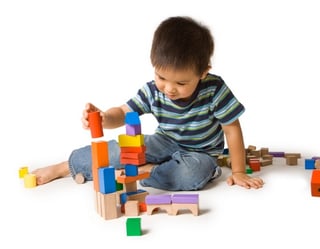How Sensory Play Encourages the Scientific Process in Preschoolers
Recently, some tech companies started allowing employees free time to "play" to help them be more creative and productive. These companies have tapped into something play-based preschools like Kid's Konnect already know: research shows play is the best way to learn, grow and be creative. In fact, sensory play — which stimulates a child's touch, taste, smell, sight and hearing — teaches preschoolers the scientific process. Here is why:
 Sensory Play Teaches Close Observation
Sensory Play Teaches Close Observation
Scientists need to observe closely and make predictions. Children playing with sensory objects naturally observe them closely. They will notice:
- Differences in size and volume with sensory objects like water, oatmeal, rice, sand or beans and different containers.
- Changes in texture with soft materials like pudding or whipped cream, or materials like fabrics, sandpaper or feathers.
- The effects of gravity by building with blocks.
- Groupings by color, size and shape using buttons or other objects.
Sensory Play Teaches Problem-Solving
Perhaps the most obvious way that sensory play develops a preschooler's understanding of the processes of science is that sensory objects naturally present problems that they need to solve. For example:
- How can I build a boat that floats?
- Which objects float and which ones sink in water?
- Which container holds the most?
- What happens if I hold an ice cube?
- Which is bigger? Smaller?
- How can I build the tallest tower?
Sensory Play Teaches Cause and Effect
The scientific process is based on an understanding of causal connections. Through sensory play, children learn strings of cause and effect, such as:
- What happens when I add water to sand?
- What happens when I mix oil and water? Milk and water? Food coloring and water?
- What happens when I press my finger down in the wet sand? My hand? My foot?
- What happens when I splash the water on my boat? What about adding pennies to my boat?
Sensory Play Teaches the Scientific Process Naturally
From birth, children are oriented to take in information through their senses and explore to learn about the world. Using sensory play at home and at preschool, teachers and parents tap into that natural learning process to help children learn to make predictions, test results and draw conclusions.
Even though sensory play can be messy and sometimes more time-consuming for adults, allowing children to have sensory play is an important positive parenting technique. What is your child's favorite sensory play?
